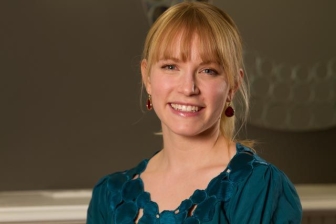Focus on: Mê-Linh Lê
May 15, 2013
Highlighting research by members of the Canadian library and information management community.
Health Sciences Centre Librarian, Neil John Maclean Health Sciences Library, University of Manitoba

What is your research topic?
My current research focuses on the information needs of public health students.
The troublesome nature of public health information has long been discussed in the literature, due in part to its multidisciplinary nature, poor application of metadata, and the fact that much of it is found in the grey literature. While there has been work done on better serving the needs of public health professionals, there is next to nothing on library services for public health students. Further complicating this is the fact that, at least at the pilot site, many public health students are international students, many of whom may be totally unfamiliar with the way North American libraries are structured (e.g., free access to resources, liaison librarians), and for whom English may not be their first language.
I felt it was important to gain a better understanding of these students with extremely diverse educational backgrounds both to aid in my own professional practice, and in the hopes of encouraging more work in this area.
What interested you in that topic?
I have worked with public health professionals in both governmental and academic settings, and find myself truly fascinated (and overwhelmed!) with the sheer depth and breadth of their knowledge and the answers they are seeking.
As a health sciences librarian I am particularly interested in public health as I can see the direct impact it has on my daily life. For example, public health researchers looking for evidence on the effectiveness of urban speed limits convey their findings to policy makers – which may then result in a change in the speed limit on my street. That direct application of visible evidence to practice drives my interest in public health, and thus motivates my research in ensuring that the complete spectrum of public health workers, from students to researcher, is fully equipped to access the information they need.
What impact would you like to see your research have on LIS practitioners?
My primary objective is to encourage more LIS researchers and practitioners to more closely examine public health information needs and to devise ways in which we can both better serve them and to come up with more effective ways to organize the literature. I am already seeing more work now than I did in the last few years, and that is so encouraging. I am happy on a personal note as it aids me in my daily work (somewhat selfish I know!), but it also means that the evidence base is growing and that our provision of service to these unique users is hopefully getting better as well.
I also hope that my work encourages other health sciences librarians or information professionals to look beyond our traditional user groups (doctors, nurses, pharmacists) and consider the kinds of resources and needs of public health students and workers. For example, a public health research question will not be satisfactorily answered with a quick scan of Medline or CINAHL.
What emerging topics do you foresee in the future of LIS research?
Well, I am not sure if these topics are in the future or already here in full force. One of the topics – the preservation, access, and provision of data and research (seen most clearly in research data management and the open access movement) – is an extremely challenging area with a lot of complexity, but I think librarians, archivists, and records-managers are well-suited to the task and I look forward to seeing where the research goes.
Another area I hope to see receive more attention is the increasingly frustrating world of electronic books. I think everyone – students, librarians, publishers, vendors – are not quite sure where electronic books are going (I often see it likened to a ‘Wild West’) and that can be difficult. I would love to see some work on libraries taking a stronger stance when it comes to eBooks and whether that impacts current eBook models and practices.
What advice would you give to LIS students or practitioners hoping to engage in research?
My best advice is to just get started!
There are so many opportunities out there for new researchers and I think you just have to get over your initial fear and jump right in. Skim the table of contents of journals you currently read – it will give you an idea of the kind of work out there getting published. Not everything has to be groundbreaking or revelatory work. For many librarians some of the most useful papers out there are case studies – which are relatively simple to write up. Start small with things like conference poster or book reviews and go from there. The vast majority of librarians are an extremely encouraging group who thrive on collaboration so start talking with your colleagues or fellow students. They might be working on something and need assistance, or they may be able to fill in a gap in your research project. You never know where a potential project might spring from.
Select Bibliography
Duncan, V., Kumaran, M., Lê, M. and Murphy, S. 2013. Mobile devices and their use in library professional practice: The health librarian and the iPad. Journal of Electronic Resources Librarianship, 25(3). [Forthcoming].
Lê, M. 2013. Information needs of public health staff in a knowledge translation setting in Canada. Journal of the Canadian Health Libraries Association, 34(01): 3-11, 10.5596/c13-001.
Lê, M. 2012. The use of anonymous pop-quizzes (APQs) as a tool to reinforce learning. Journal of the Medical Library Association, 100(4): 316–319, 10.3163/1536-5050.100.4.017.
Add a new comment